Putin tells Ukraine to stop fighting amid new ceasefire calls
Authorities in Mariupol say they would make a second attempt to evacuate some of 400,000 residents
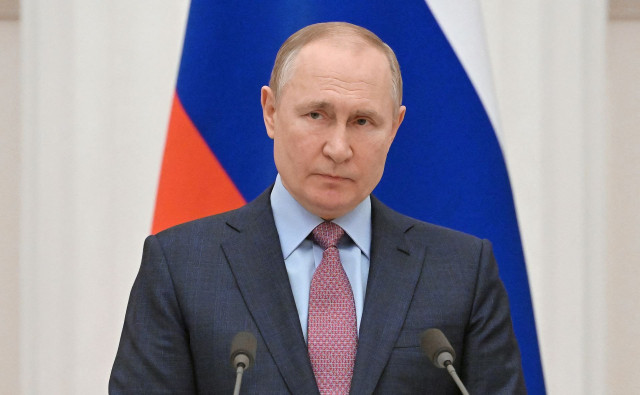
Russian President Vladimir Putin said on Sunday his campaign in Ukraine was going according to plan and would not end until Kyiv stopped fighting, as efforts to evacuate the heavily bombarded city of Mariupol failed for a second day in a row.
He made the comments in a phone call with Turkish President Tayyip Erdogan, who appealed for a ceasefire in the conflict that the United Nations says has created the fastest growing refugee crisis in Europe since World War Two.
Russian media said Putin also held almost two hours of talks on Sunday with French President Emmanuel Macron, who has stayed in regular contact but, as with other international efforts, has yet to persuade Moscow to call off a campaign now in an 11th day.
Authorities in Mariupol had said on Sunday they would make a second attempt to evacuate some of the 400,000 residents, after the Ukrainian coastal city endured days of shelling that has trapped people in without heat, power and water.
Read more: Putin threatens Ukraine 'statehood' as Moscow sanctions tighten
But the ceasefire plan collapsed, as it had on Saturday, with each side blaming the other for the failure.
Putin told Erdogan he was ready for dialogue with Ukraine and foreign partners but any attempt to draw out negotiation would fail, a Kremlin statement said. Turkey said Erdogan had called for a ceasefire to ease humanitarian concerns.
Kyiv renewed its appeal to the West to toughen sanctions beyond existing efforts that have hammered Russia's economy. It also requested more weapons, including a plea for Russian-made planes, to help it repel Russian forces.
US Secretary of State Anthony Blinken said Washington was "very, very actively" considering how it could backfill aircraft for Poland, if Warsaw decided to supply its warplanes to Ukraine, speaking on a trip to neighbouring Moldova.
'Destroying us'
Moscow calls the campaign it launched on Feb. 24 a "special military operation", saying it has no plans to occupy Ukraine, which was once part of the Soviet Union under Moscow's sway but which has now turned West seeking membership of NATO and the European Union.
"They’re destroying us," Mariupol mayor Vadym Boychenko told Reuters in a video call, describing the plight of the city of 400,000. "They will not even give us an opportunity to count the wounded and the killed because the shelling does not stop."
Russia, which denies attacking civilian areas, has poured troops and equipment into Ukraine. A huge Russian convoy on a road north of Kyiv has made limited visible progress in recent days, although Russia's defence ministry released footage on Sunday showing some tracked military vehicles on the move.
In the capital, Ukrainian soldiers bolstered defences by digging trenches, blocking roads and liaising with civil defence units as Russian forces bombarded areas nearby.
"Positions are prepared, we've fitted them out and we are simply waiting to meet them here," said a soldier in a video released by Ukraine's armed forces. "Victory will be ours."
Ukrainian President Volodymyr Zelenskiy said Russian rockets had destroyed the civilian airport of the central-western region capital of Vinnytsia on Sunday. He also said Russia was preparing to bombard another southern city, Odessa.
"Rockets against Odessa? This will be a war crime," he said.
Read: Ukrainian refugees near 1.5 million as Russian assault enters 11th day
The World Health Organisation said there had been several attacks on Ukrainian healthcare facilities during the conflict. The attacks caused deaths and injuries, WHO chief Tedros Adhanom Ghebreyesus said in a Twitter message, but gave no details.
"Attacks on healthcare facilities or workers breach medical neutrality and are violations of international humanitarian law," he said. read more
Tightening sanctions pressure
Ukrainians continued to spill into Poland, Romania, Slovakia and elsewhere. UN High Commissioner for Refugees Filippo Grandi said more than 1.5 million people had fled in the fastest growing refugee crisis in Europe since World War Two
The agency has said the number could hit 4 million by July.
British military intelligence said on Sunday that Russian forces were attacking populated areas in Ukraine, comparing the tactics to those Russia used in Chechnya in 1999 and Syria in 2016. But it said Ukrainian resistance was slowing the advance.
Putin says he wants a "demilitarised", "denazified" and neutral Ukraine and on Saturday likened Western sanctions "to a declaration of war".
The West, which calls Putin's reasons for invading baseless, has ratcheted up sanctions and scaled up effort to rearm Ukraine, sending in items ranging from Stinger missiles to anti-tank weapons.
But Washington and its NATO allies have resisted Ukraine's appeals for a no-fly zone for fear that it would escalate the conflict beyond Ukraine's borders.
Western sanctions have pushed many companies to exit investments in Russia, while some Russian banks have been shut out of a global financial payment systems, driving down the rouble and forcing Moscow to jack up interest rates.
Increasing the pressure further, US payment companies Visa Inc (V.N) and MasterCard Inc said they would suspend credit card operations in Russia.
Ukraine's military said more than 11,000 Russian troops had been killed so far and 88 Russian aircraft shot down since the start of the invasion. Reuters could not corroborate the claim. Russia has not given regular updates on its death toll.
More than 350 civilians have been killed, according to the UN rights office on Saturday, with hundreds more injured. read more
Demonstrations were planned on Sunday in Washington and elsewhere after jailed Kremlin critic Alexei Navalny called for worldwide protests on March 6 against the war.
More than 2,000 people were detained in anti-war protests in cities across Russia, according to an independent Russian-based protest monitor.

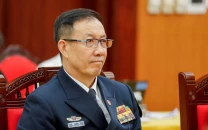
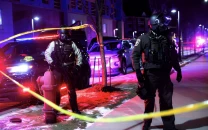

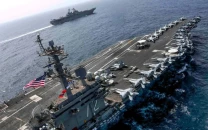
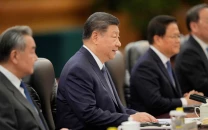
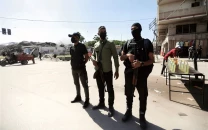











COMMENTS
Comments are moderated and generally will be posted if they are on-topic and not abusive.
For more information, please see our Comments FAQ